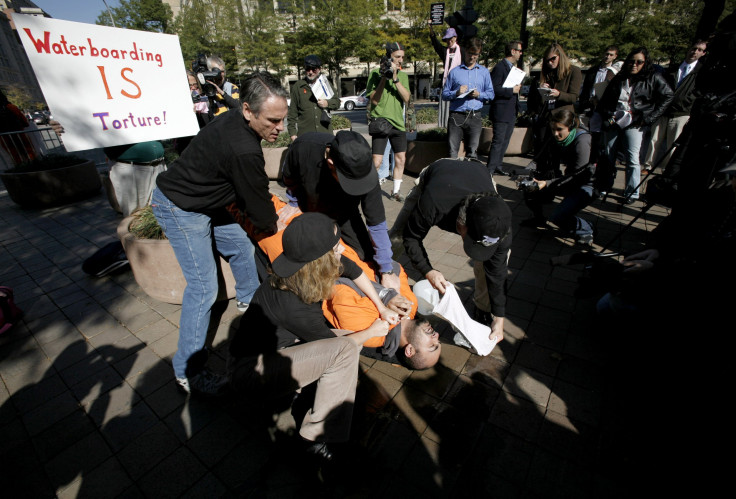CIA Torture Report: Where Are The Protests? Muslims 'Not Shocked' By Interrogation Tactics

When the U.S. Senate laid bare the details of the Central Intelligence Agency’s egregious treatment of suspected terrorists on Tuesday, some U.S. lawmakers braced for what they said would be a swift and perhaps violent response from Muslims and the Middle East. But the report’s release was anything but the dramatic crash it was supposed to be. Many Middle Eastern newspapers have been markedly silent on the subject. Few Arab leaders have condemned the atrocities described in the report, and the public outcry has remained relatively minute, aside from the usual barrage of angry social media commentary. If anything, the Arab world’s response to the report was a yawn, at best.
The reason Muslims across the world have not taken to the streets to decry the U.S.’ use of torture against detainees has largely to do with the seemingly unsurprising nature of the report. While the investigation legitimized rumors and media coverage of such human rights abuses as waterboarding, sleep deprivation and others, many of those had already been widely recounted. “It wasn’t shocking to Muslims,” Ibrahim Hooper, a spokesperson for the U.S.-based Council on American-Islamic Relations, told International Business Times. People largely assumed the CIA was torturing detainees. The report simply provided “specifics and details,” he said. “I haven’t seen [the report] as a great topic of discussion” among American Muslims, Hooper said.
When it was revealed in Feb. 2012 that U.S. soldiers had desecrated several copies of the Quran at a military base in Afghanistan, violent protests erupted there that lasted for days. Similar demonstrations took place that same year after a video espousing anti-Muslim views appeared on YouTube. The video, titled “Innocence Of Muslims,” painted the prophet Muhammad as a womanizer and a child molester.
The report created by the Senate Intelligence Committee detailed enhanced interrogiation tactics used by CIA after the Sept. 11, 2001 terrorist attacks. It said the intelligence agency used interrogation techniques like waterboarding, sleep deprivation and “rectal feeding” that did not result in the capture of Osama Bin Laden or make the U.S. any safer.
“The issues that really mobilize Muslims are when they feel that their religions or beliefs are being disrespected,” Ali Asani, professor of Indo-Muslim and Islamic religion and cultures at Harvard University in Cambridge, Massachusetts, told IBTimes. For many Muslims, such affronts to Islam harken back to the days of imperialism when Muslims were made to feel inferior to Westerners. People are “more likely” to become incensed by videos and acts that specifically attack Islam as a religion than by an issue that has long been known, Asani said.
What's more, many Arab nations were either tacitly or directly complicit in the U.S. “enhanced interrogation” program, experts said. Arab and Muslim leaders “for the most part have either endorsed U.S. torture policies, participated in it by providing logistical support in the form of language interpretation or actual personnel engaging as sub-contractors in the process,” Hatem Bazian, professor of Middle Eastern studies and ethnic studies at the University of California, Berkeley and cofounder of Zaytuna College in California, told IBTimes. Some Arab leaders began engaging in torture for their own domestic purposes, Bazian said. The U.S.’ so-called war on terrorism “made this infrastructural torture the norm,” he said, adding “the moral and ethical boundaries have already been crossed.”
© Copyright IBTimes 2024. All rights reserved.






















